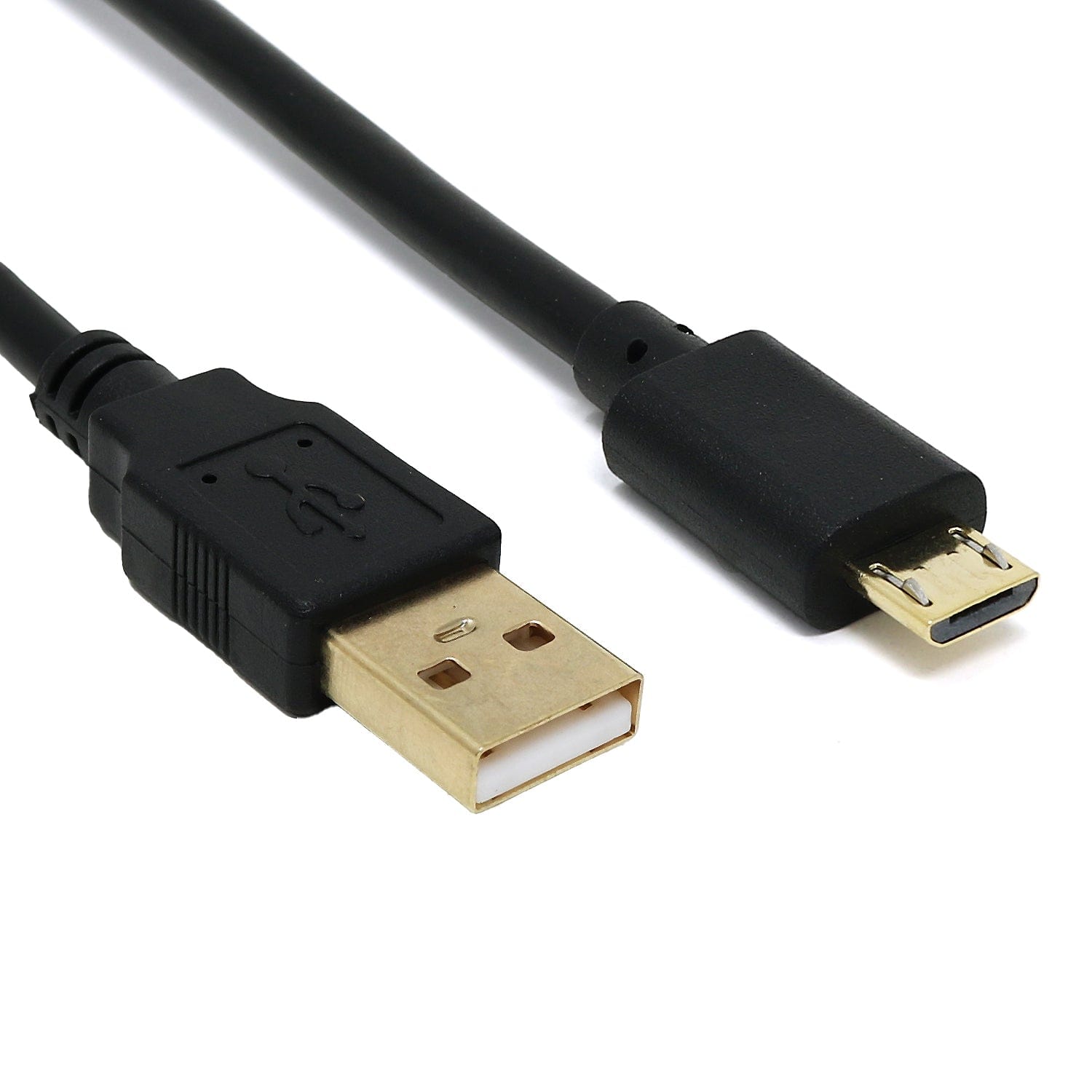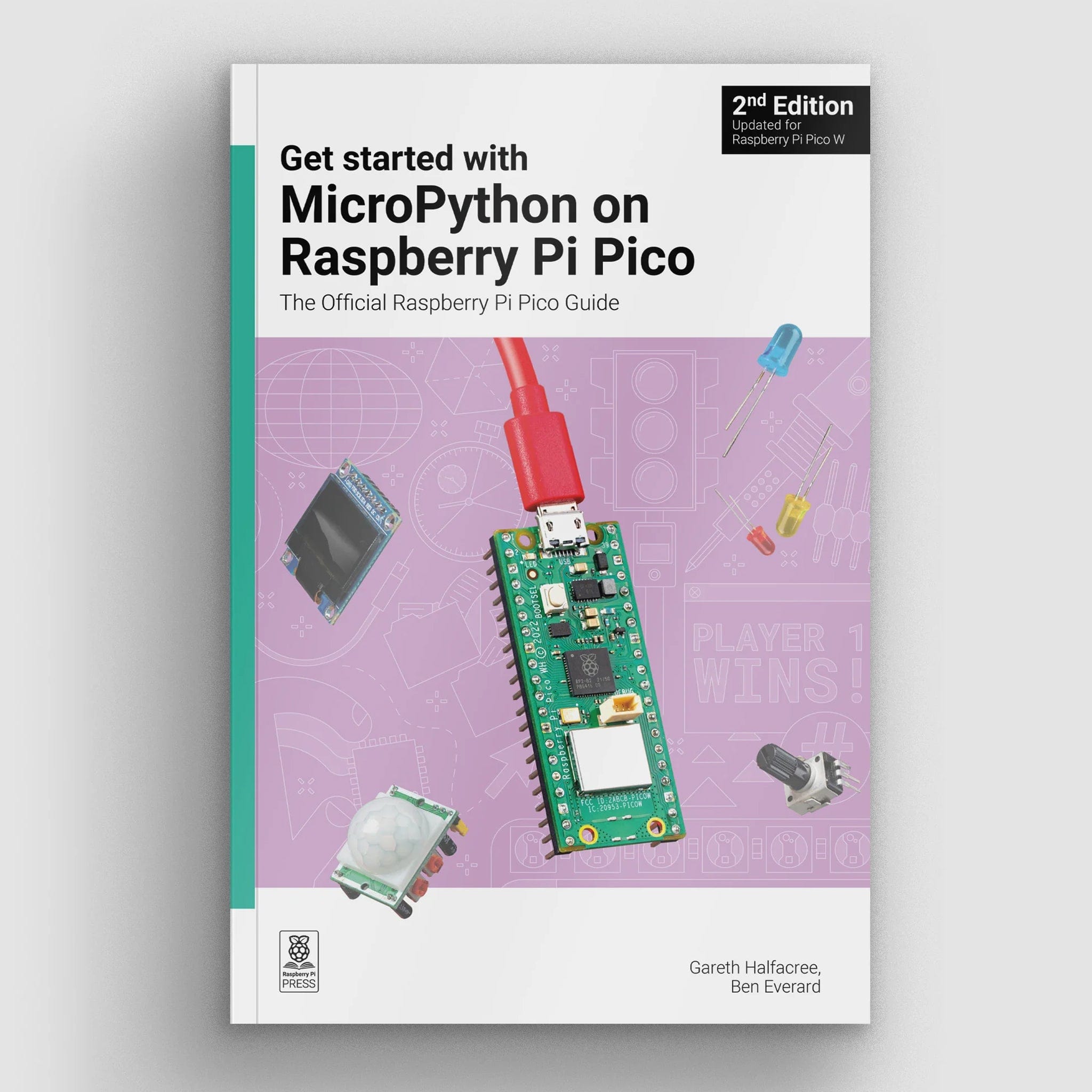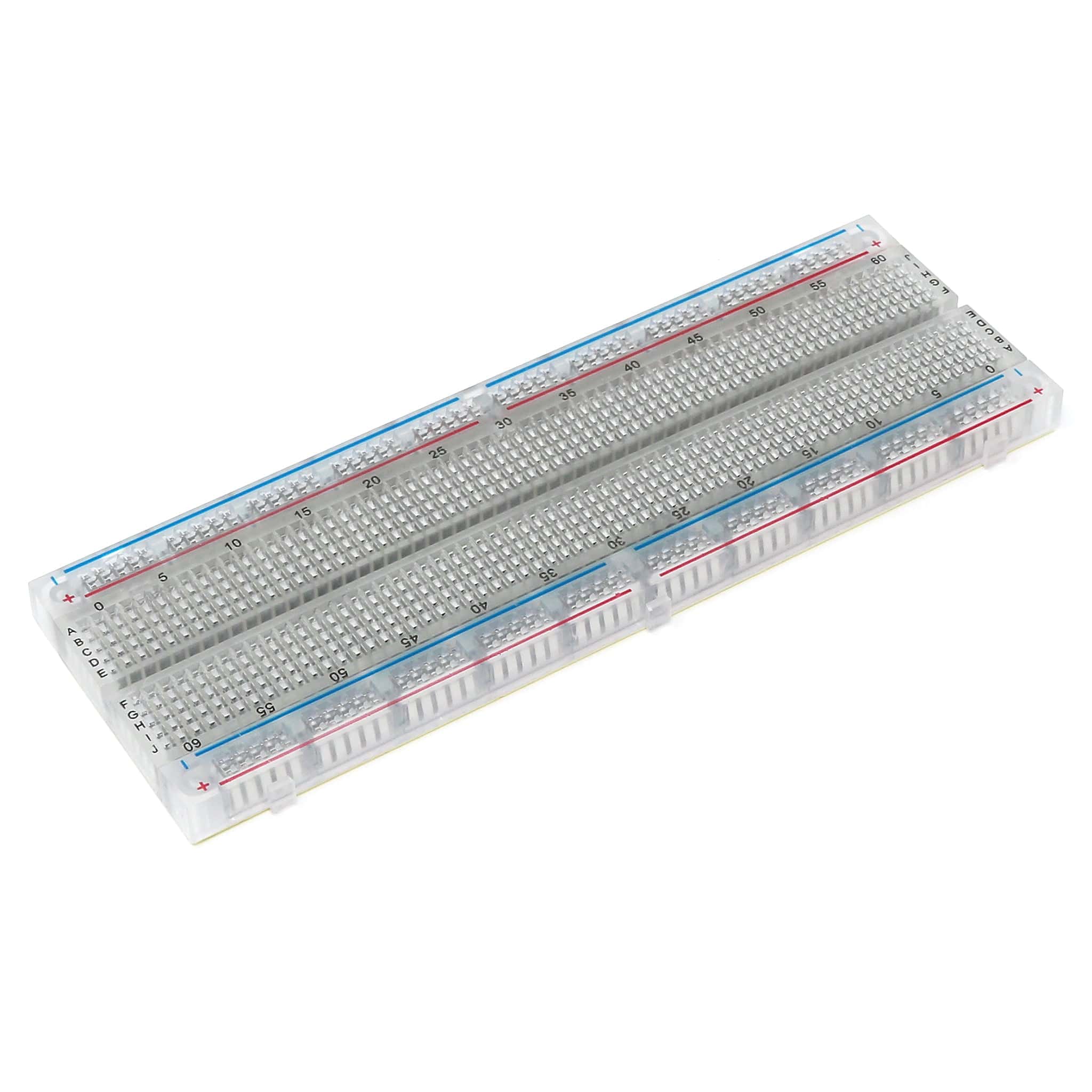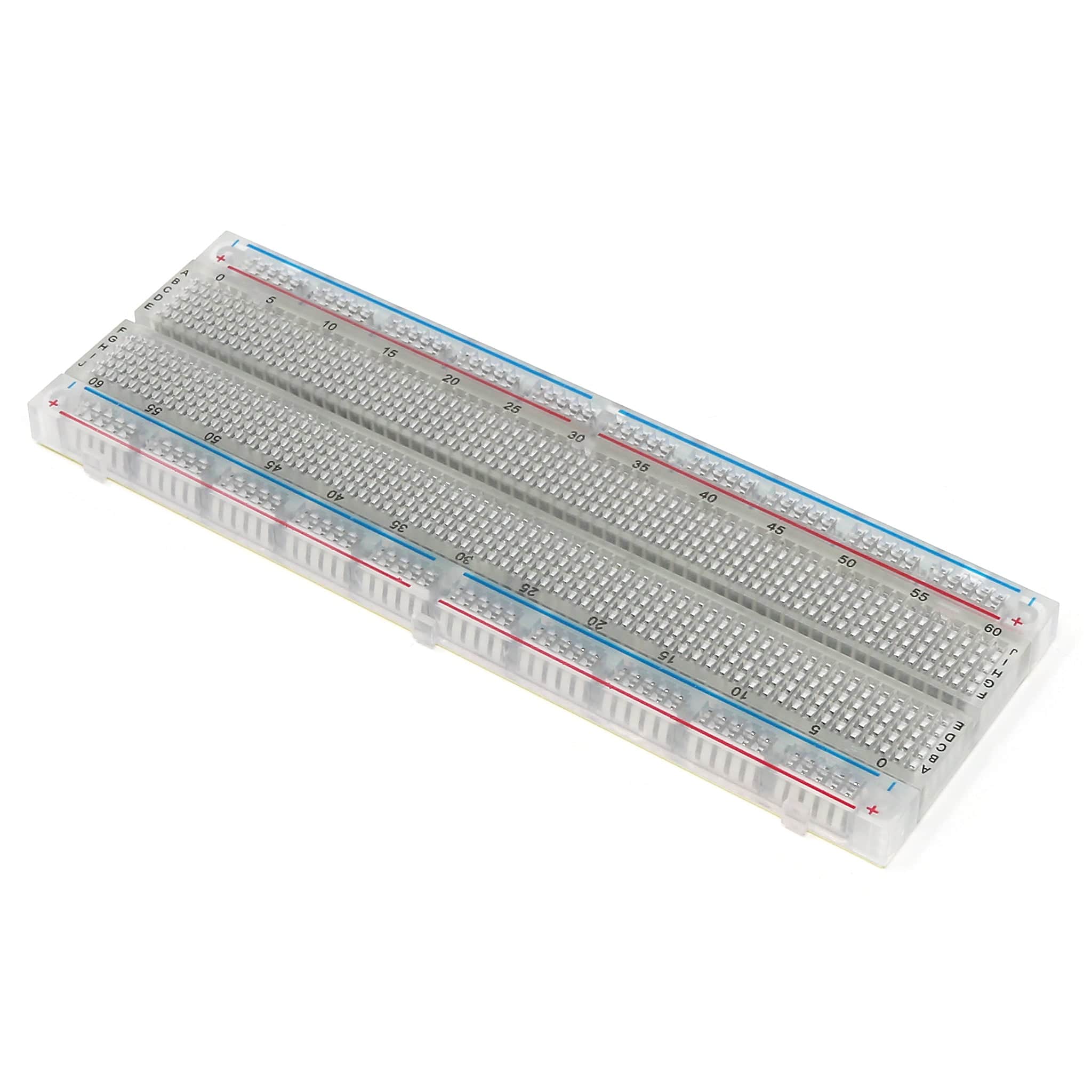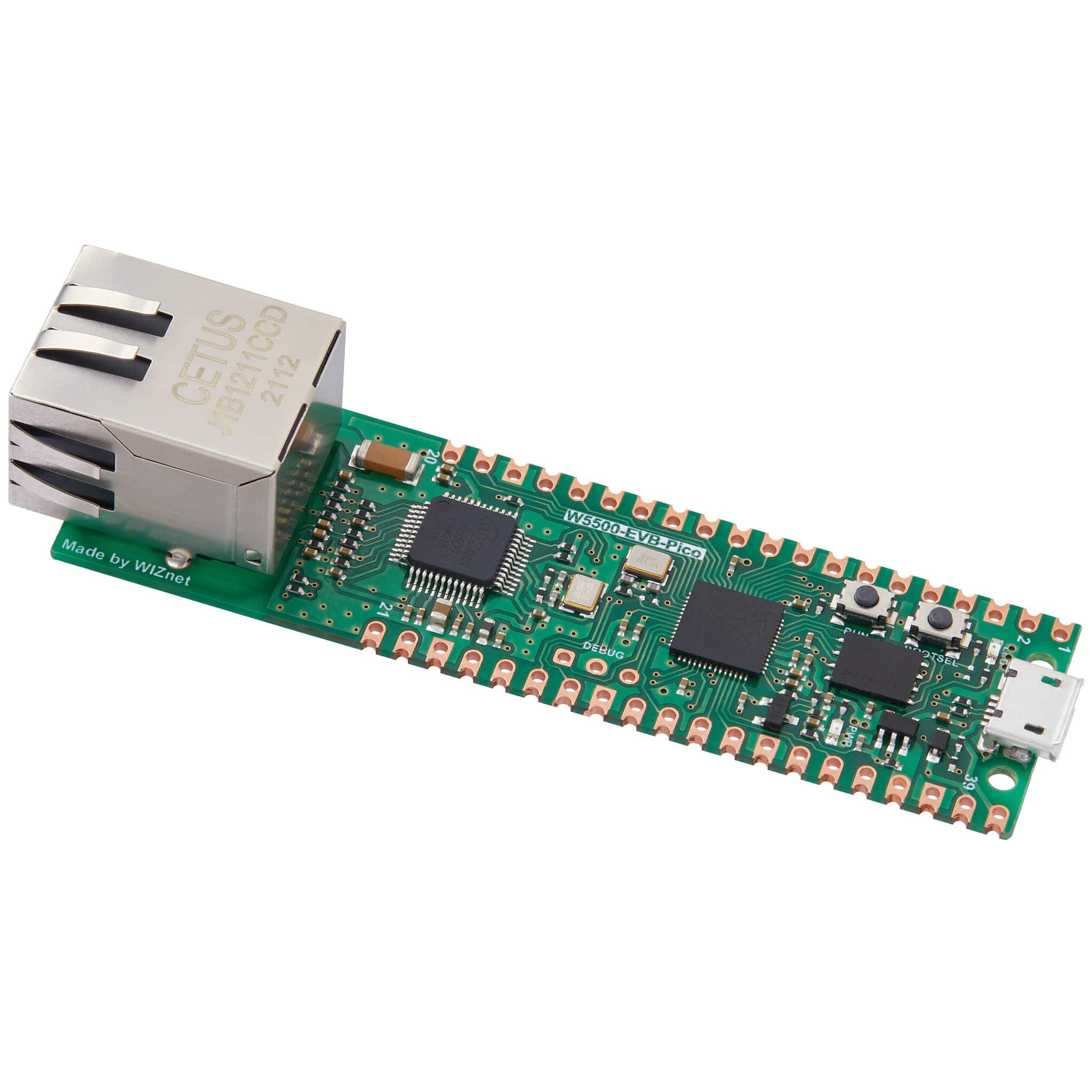
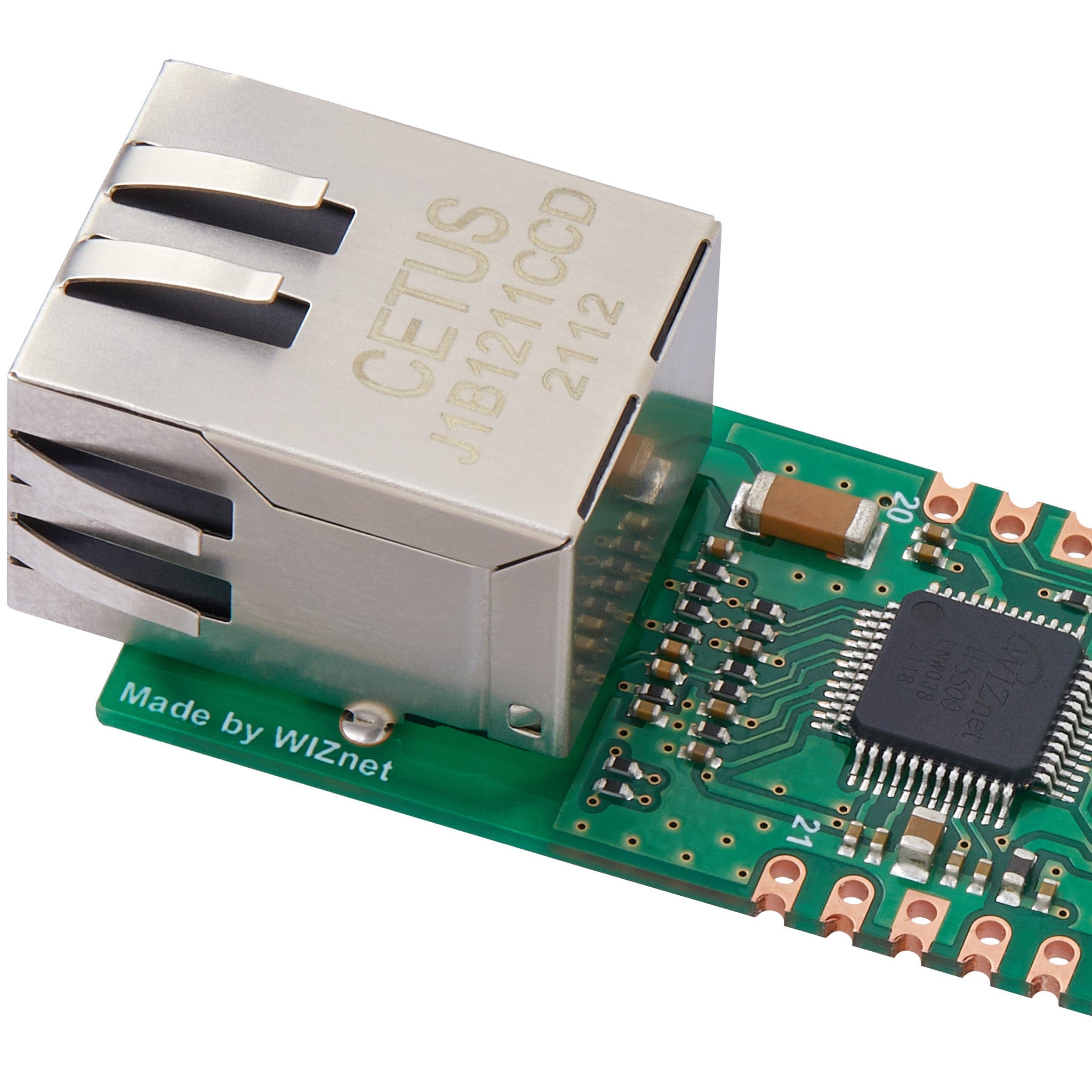
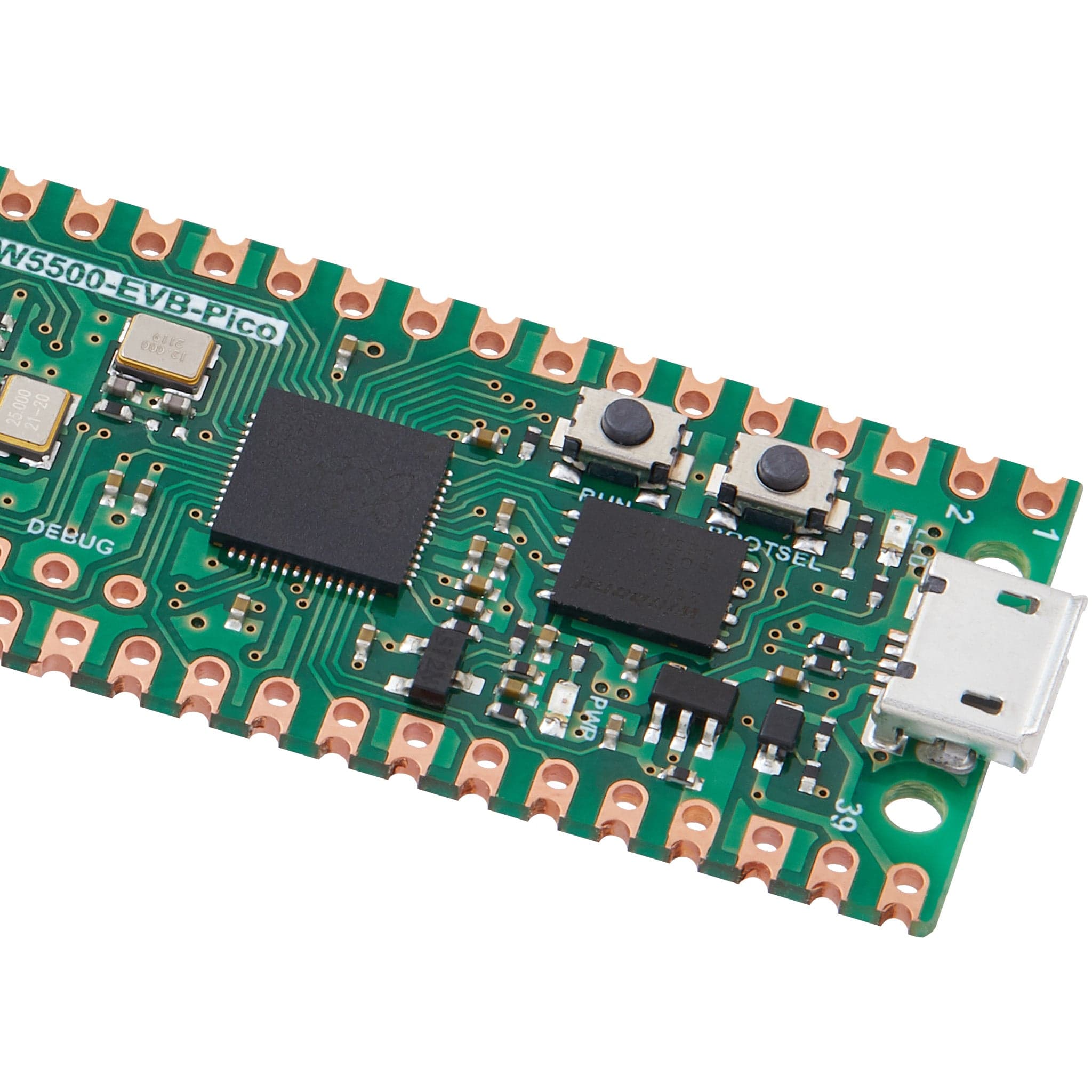
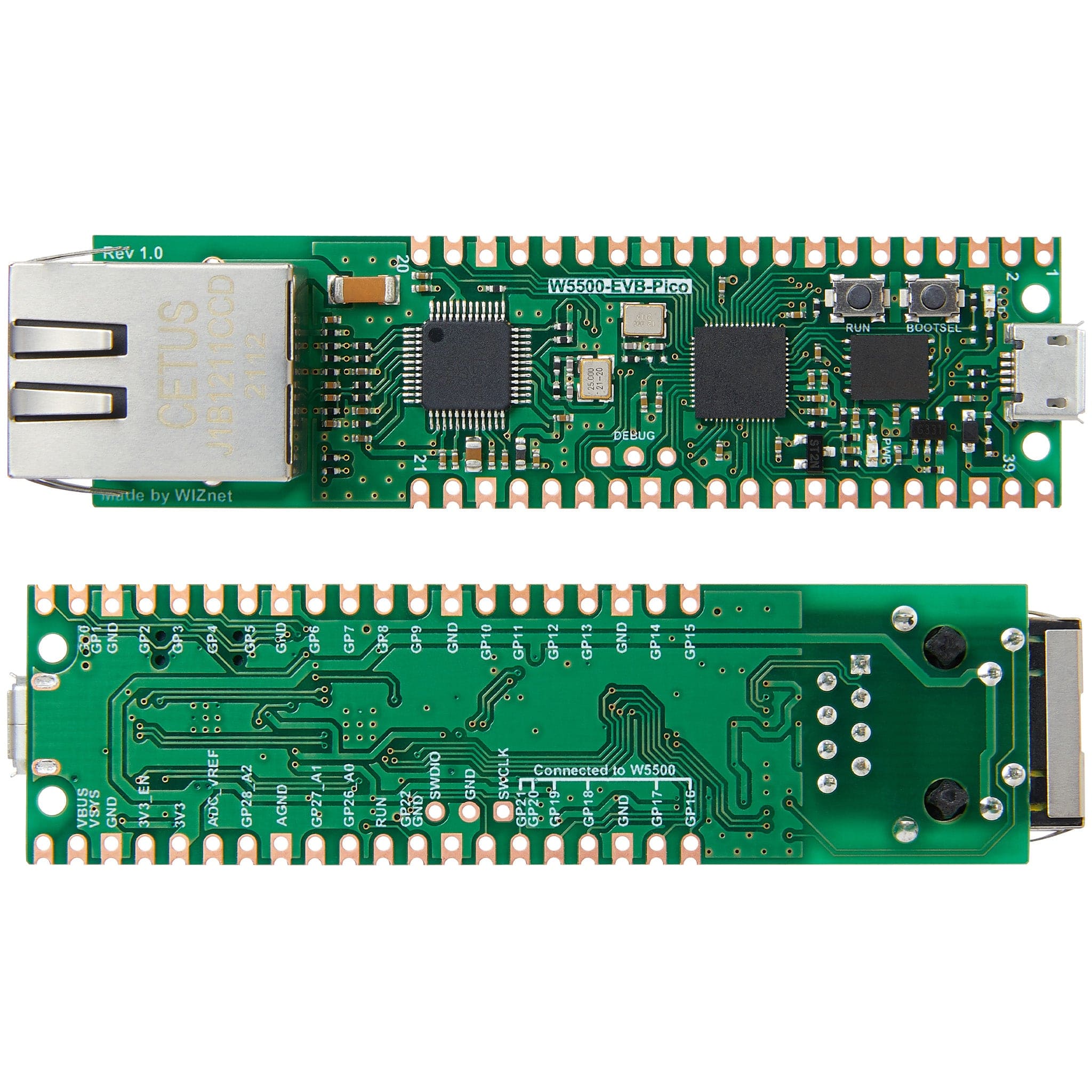
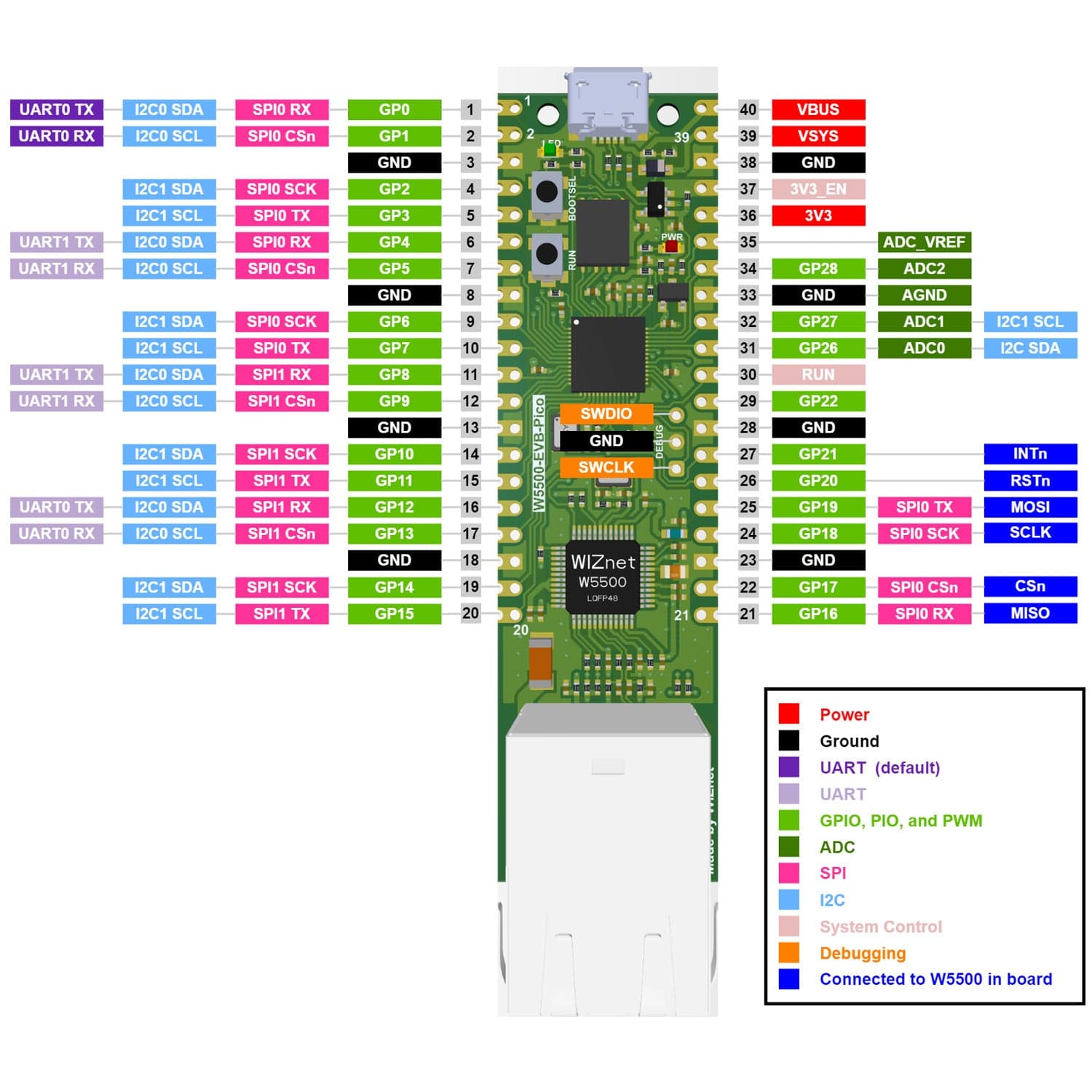
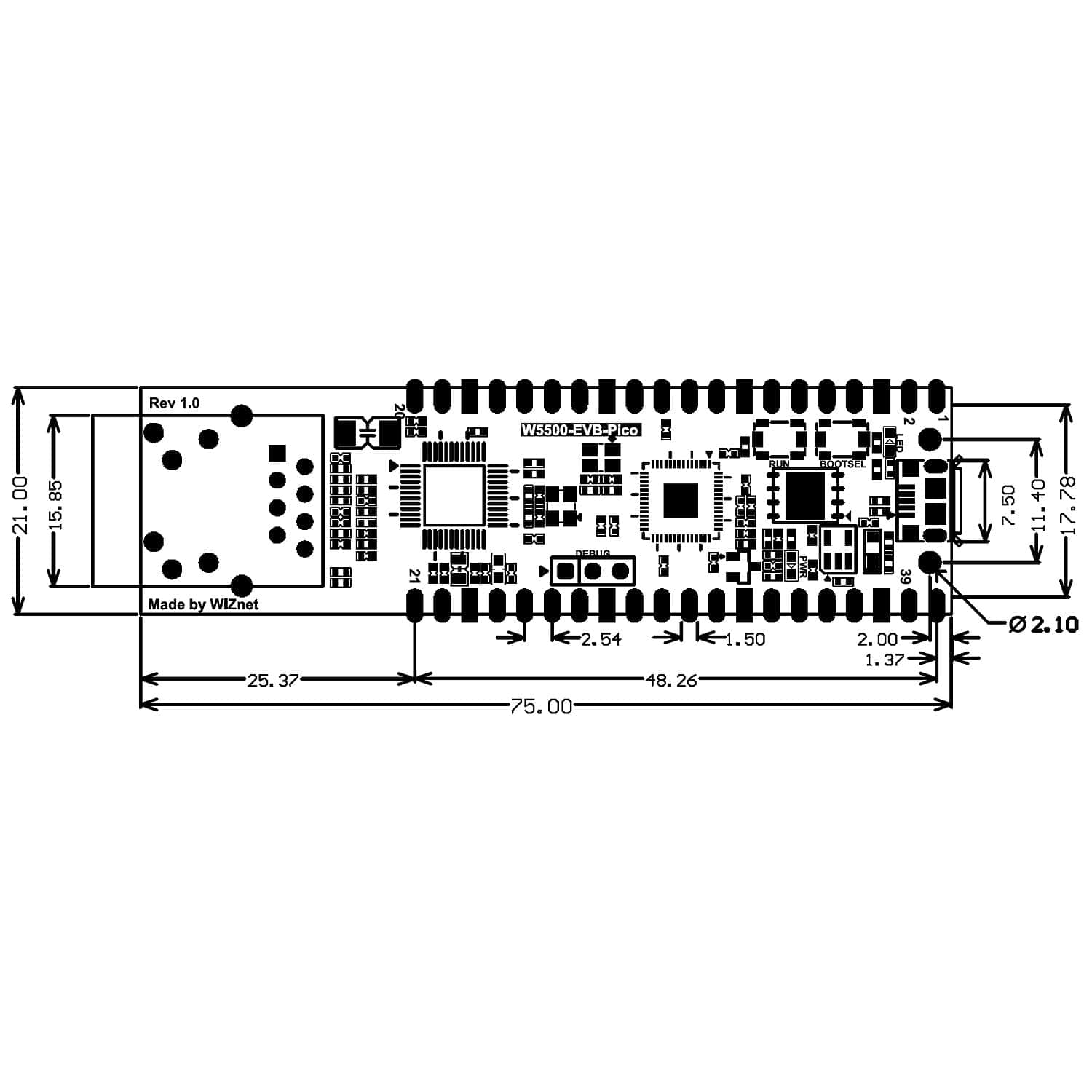
Login / Signup
Cart
Your cart is empty
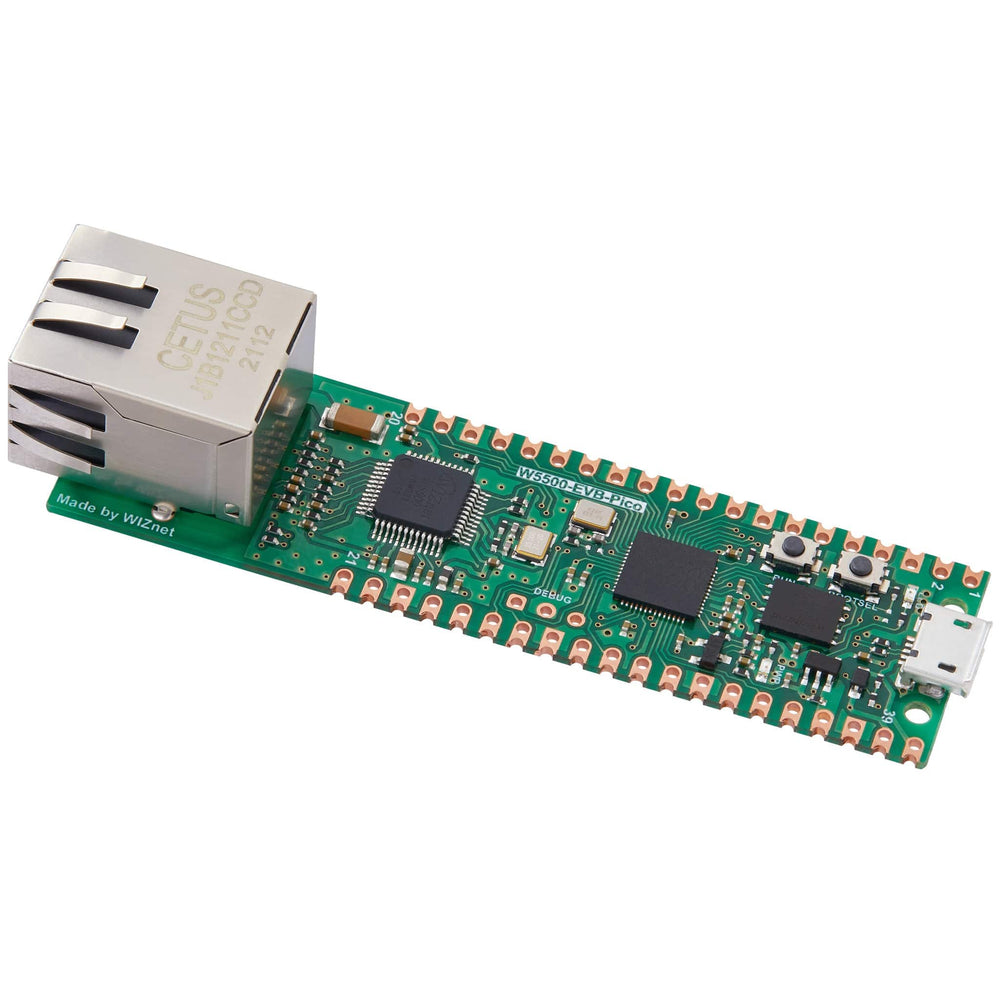
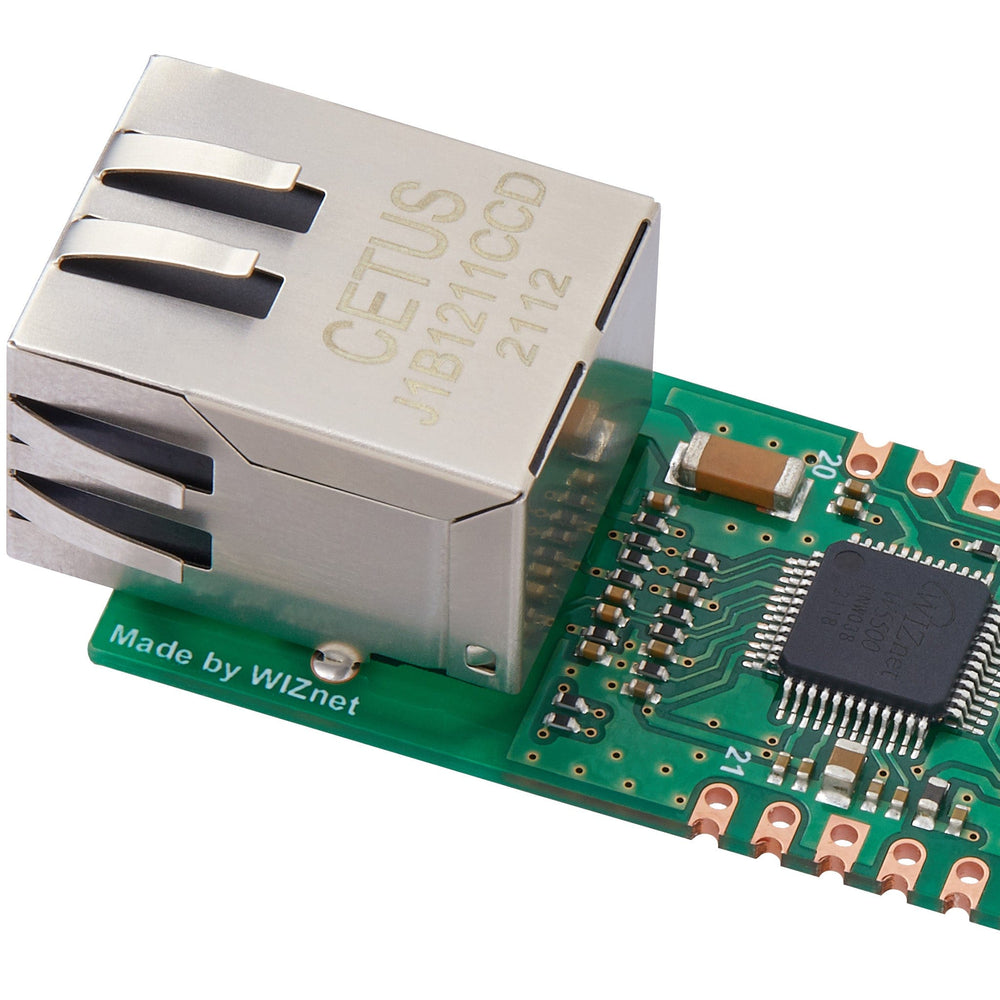
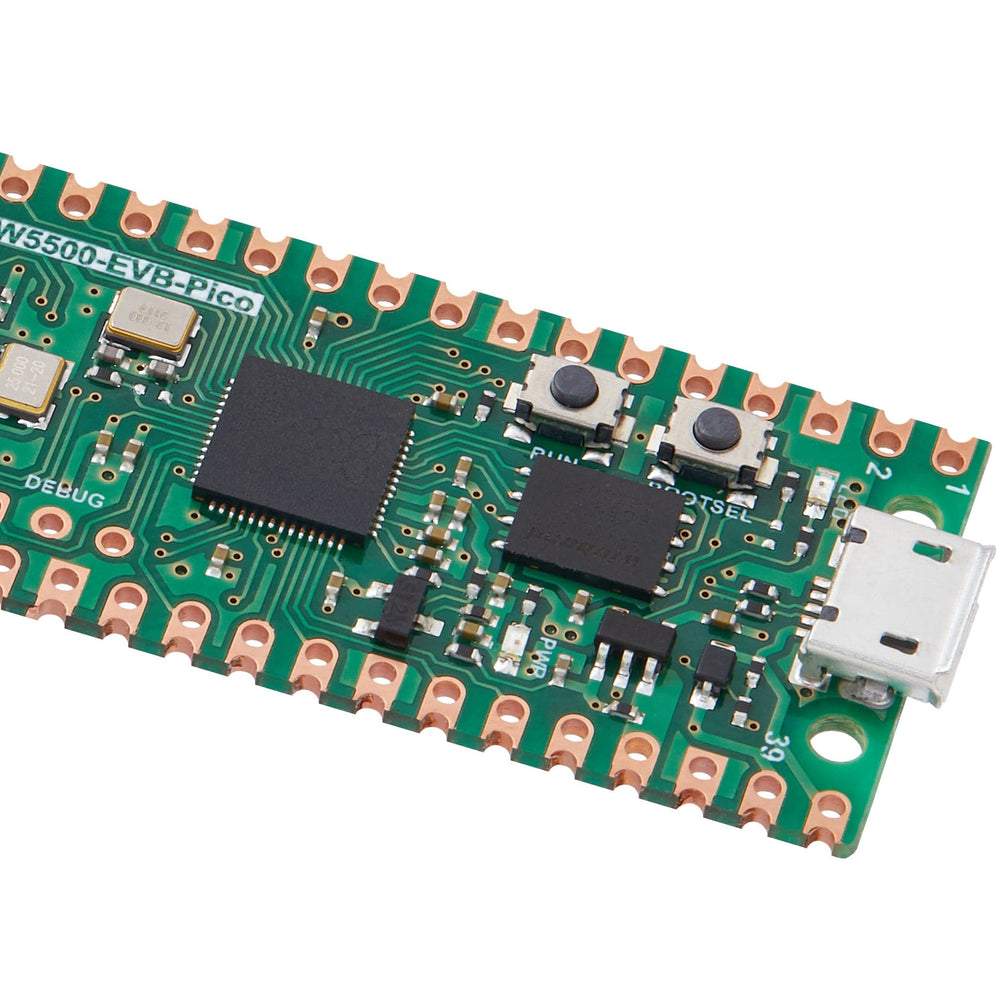
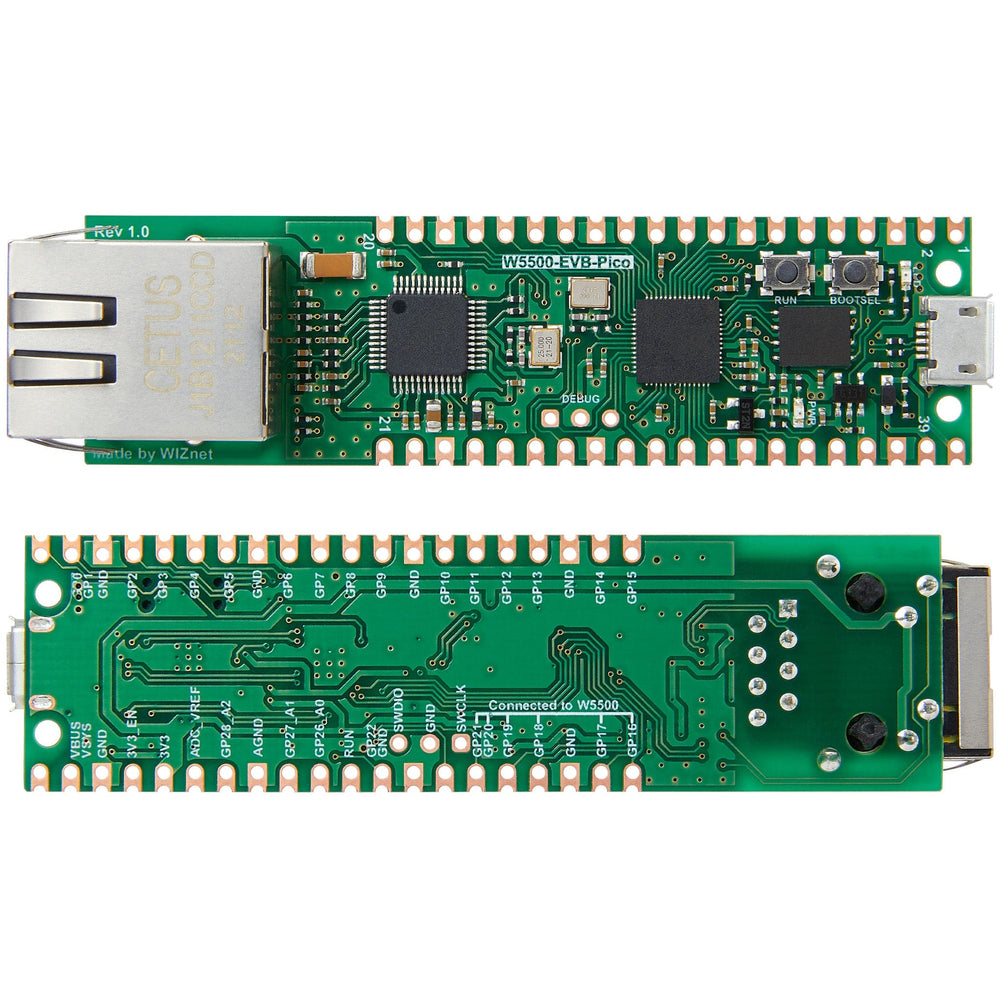
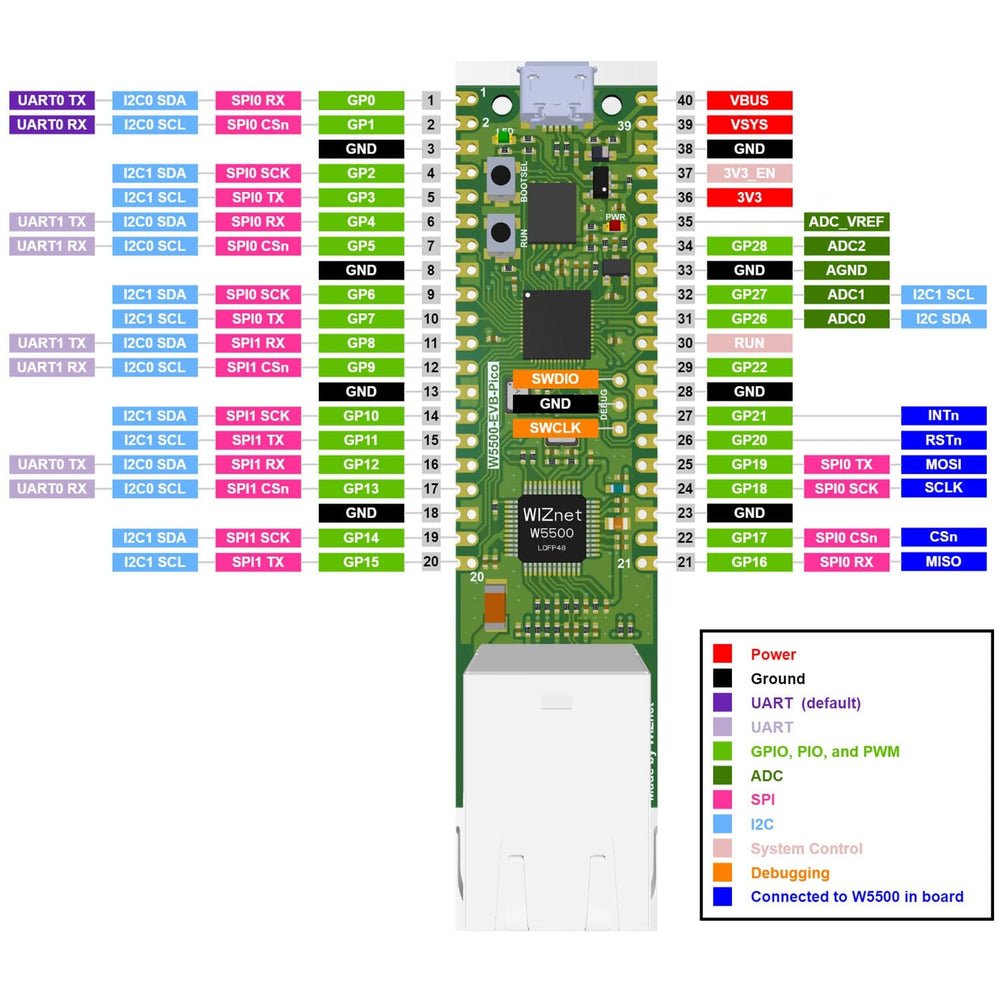
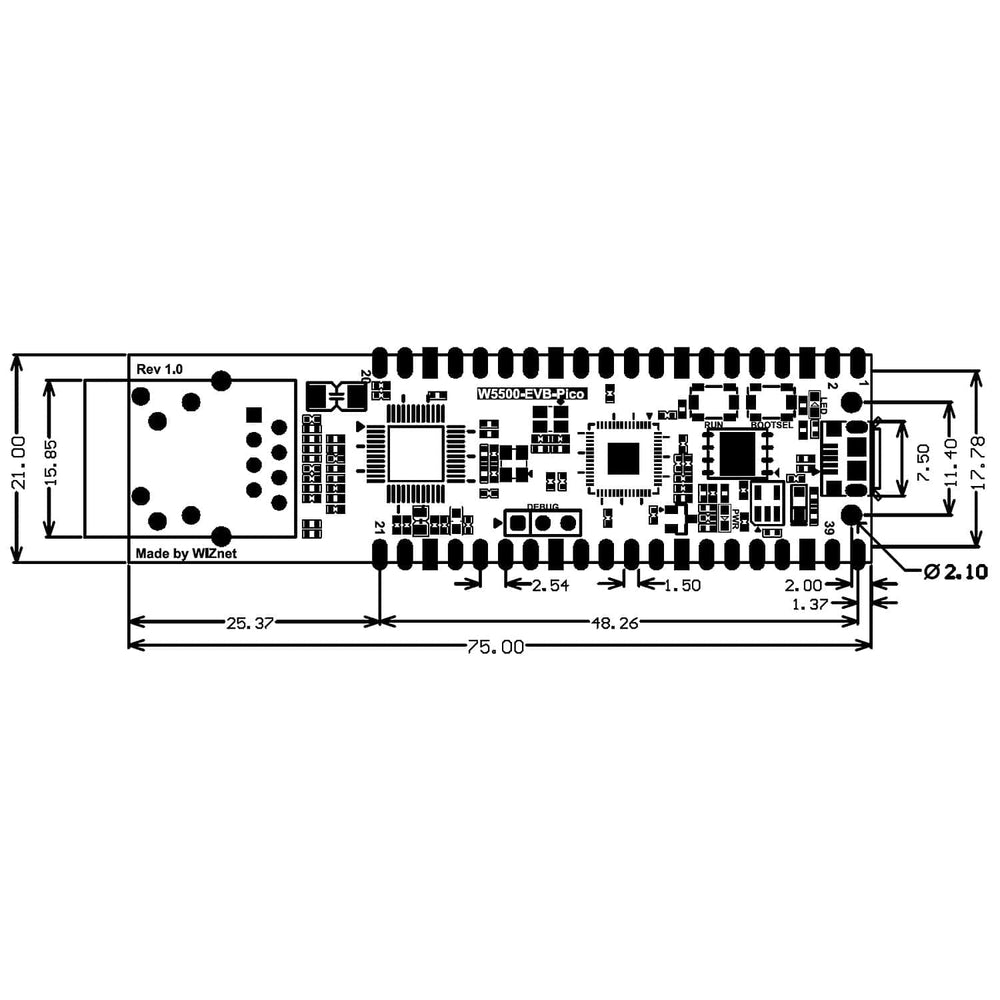
The W5500-EVB-Pico is a microcontroller evaluation board based on the Raspberry Pi RP2040 microcontroller chip and a full hardwired TCP/IP controller W5500 chip.
As the board uses the same pin layout as the Raspberry Pi Pico and includes W5500 embedded ethernet controller, giving you the power of a Raspberry Pi Pico with Ethernet connectivity in a single board!
Updated version! We're now stocking the W5500 version of this board
There's a detailed getting started guide and firmware examples, and it's also the first RP2040-based device to receive AWS IoT Core Qualification!
Don't forget to grab a micro-USB cable for programming. The board comes with a pair of male headers but we also have female and stacking sets in the store.

The W5500-EVB-Pico pinout is directly connected to the GPIO of RP2040 as shown in the picture above. It has the same pinout as the Raspberry Pi Pico board. However, GPIO16, GPIO17, GPIO18, GPIO19, GPIO20, GPIO21 are connected to W5500 inside the board. These pins enable SPI communication with W5500 to use the Ethernet function.
If you are using the Ethernet function, these pins cannot be used for any other purpose.
The RP2040 GPIO used inside W5500-EVB-Pico is as follows.
| I/O | Pin Name | Description |
| I | GPIO16 | Connected to MISO on W5500 |
| O | GPIO17 | Connected to CSn on W5500 |
| O | GPIO18 | Connected to SCLK on W5500 |
| O | GPIO19 | Connected to MOSI on W5500 |
| O | GPIO20 | Connected to RSTn on W5500 |
| I | GPIO21 | Connected to INTn on W5500 |
| I | GPIO24 | VBUS sense - high if VBUS is present, else low |
| O | GPIO25 | Connected to user LED |
| I | GPIO29 | Used in ADC mode (ADC3) to measure VSYS/3 |
Apart from GPIO and ground pins, there are 7 other pins on the main 40-pin interface:
| Pin | Name | Description |
| 40 | VBUS | Micro-USB input voltage, connected to micro-USB port pin 1. Nominally 5V |
| 39 | VSYS | Main system input voltage, which can vary in the allowed range 4.3V to 5.5V, and is used by the on-board LDO to generate the 3.3V |
| 37 | 3V3_EN | Connects to the on-board LDO enable pin. To disable the 3.3V (which also de-powers the RP2040 and W5500), short this pin low |
| 36 | 3V3 | Main 3.3V supply to RP2040 and W5500, generated by the on-board LDO |
| 35 | ADC_VREF | ADC power supply (and reference) voltage, and is generated on W5500-EVB-Pici by filtering the 3.3V supply |
| 33 | AGND | Ground reference for GPIO26-29 |
| 30 | RUN | RP2040 enable pin, To reset RP2040, short this pin low/use button |
| Item | Description |
| Operation Temperature MAX | 85C (including self-heating) |
| Operation Temperature MIN | -20C |
| VBUS | DC 5V (+/- 10%) |
| VSYS Min | DC 4.3V |
| VSYS Max | DC 5.5V |
Recommended maximum ambient temperature of operation is 70C.







